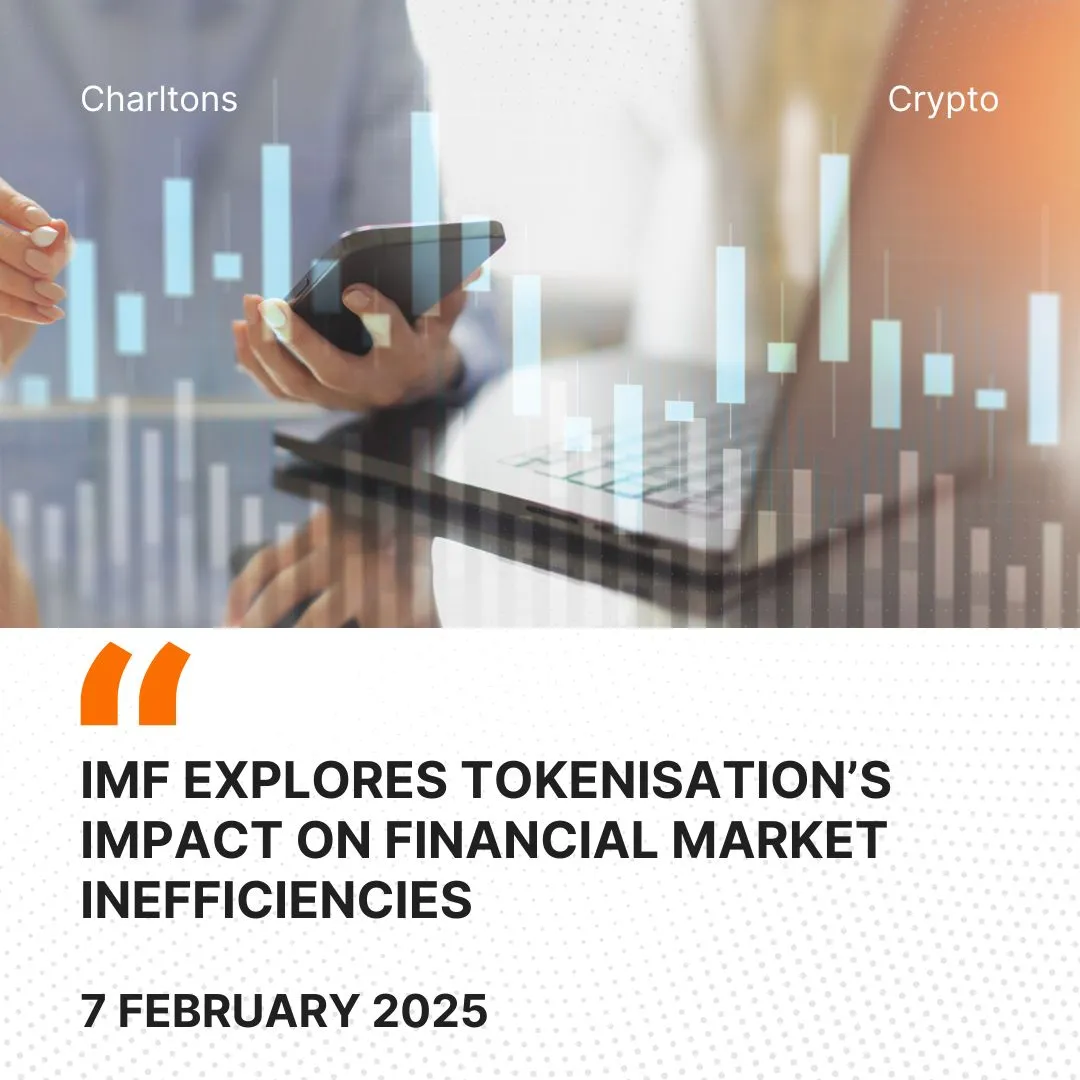
The International Monetary Fund (IMF) has released its latest Fintech Note, ‘Tokenization and Financial Market Inefficiencies (Note 2025/001)’, authored by Itai Agur, Germán Villegas-Bauer, Tommaso Mancini-Griffoli, Maria Soledad Martinez Peria, and Brandon Tan. This report presents an in-depth analysis of how tokenization: a financial innovation driven by digital ledger technology may influence inefficiencies in financial markets. The study provides a conceptual framework grounded in economic principles, evaluating potential changes in transaction frictions, externalities, and market structures resulting from tokenization.
The note by IMF examines tokenisation’s role in mitigating financial market inefficiencies, which include asymmetric information, search frictions, transaction costs, and counterparty risks. While recognising its benefits, the report elaborates on potential risks, such as increased financial interconnectedness and market volatility, relevant for policymakers assessing the implications of integrating digital ledger technology into regulatory and financial frameworks.
The report defines tokenisation as the creation of assets or asset representations on a shared, trusted, and programmable digital ledger. It explores how tokenization interacts with existing financial market structures, with particular emphasis on how digital ledgers affect asset issuance, trading, servicing, and redemption.
The study identifies two categories of financial inefficiencies that tokenisation may address, Market frictions which includes asymmetric information, transaction costs, search frictions, and counterparty risks. Tokenization, by enabling real-time data-sharing, automation through smart contracts, and reducing reliance on intermediaries, could significantly lower these frictions. And secondly, on externalities, internalities, and market power, report discusses both positive and negative consequences. While tokenization may enhance liquidity, increase innovation, and reduce market entry barriers, it may also exacerbate systemic risks due to higher interconnectedness, market concentration, and potential vulnerabilities to cyberattacks.
The report by IMF draws attention to existing pilot projects, such as Project Agorá, an initiative by the Bank for International Settlements (BIS) and seven central banks, which explores the integration of tokenized commercial bank deposits with central bank money. The study also references Project Global Layer 1 (Monetary Authority of Singapore) and Drex (Central Bank of Brazil), which examine digital ledger-based financial asset issuance and settlement.
Tokenization is an ongoing development, with various central banks, financial institutions, and regulators actively exploring its feasibility. The IMF report emphasises that by 2030, tokenized assets could account for 10% of global GDP, according to projections by Boston Consulting Group. The US, UK, EU, and Asian financial hubs are engaging in pilot programmes to test tokenized securities and central bank digital currencies (CBDCs). The Bank of England, Swiss National Bank, and the Federal Reserve Bank of New York are among institutions assessing how tokenized bank deposits can integrate with central banking systems. The adoption of tokenized assets in mainstream finance will likely depend on regulatory clarity, technological reliability, and market acceptance. While tokenization holds promise for reducing inefficiencies and enhancing market accessibility, the IMF stated that its impact on financial stability remains uncertain. Policymakers will need to balance innovation with risk mitigation, ensuring that the benefits of tokenization do not come at the cost of heightened systemic vulnerabilities.
(Source: https://www.imf.org/-/media/Files/Publications/FTN063/2025/English/FTNEA2025001.ashx, https://www.imf.org/en/Publications/fintech-notes/Issues/2025/01/29/Tokenization-and-Financial-Market-Inefficiencies-561256)





